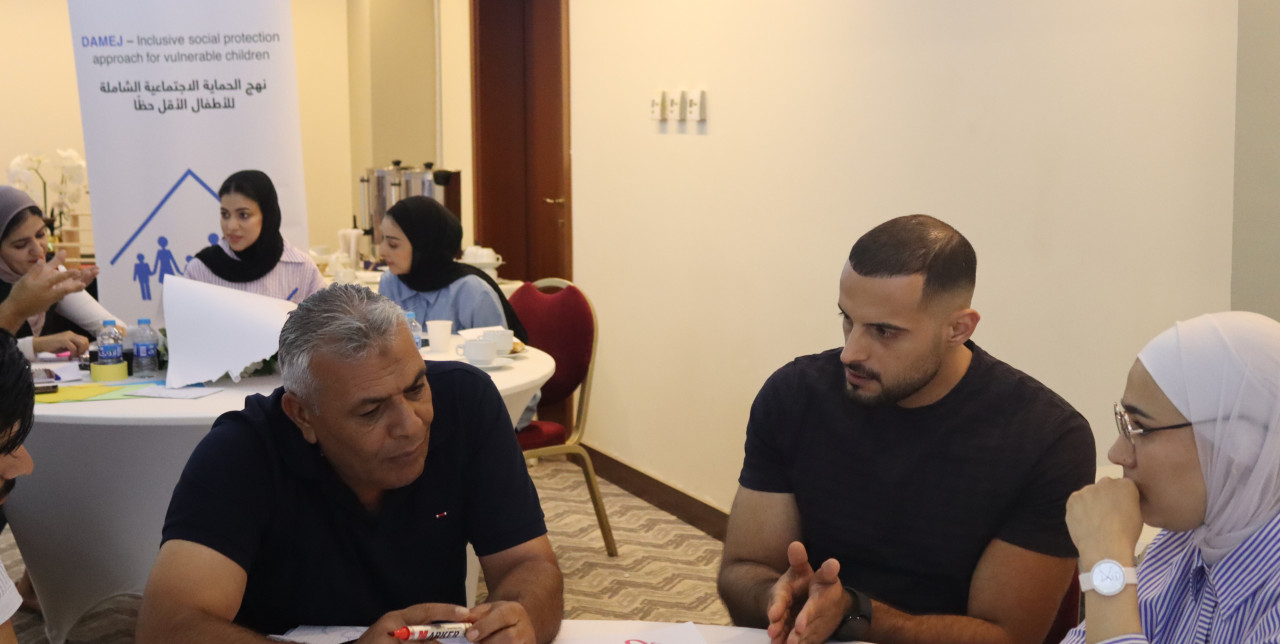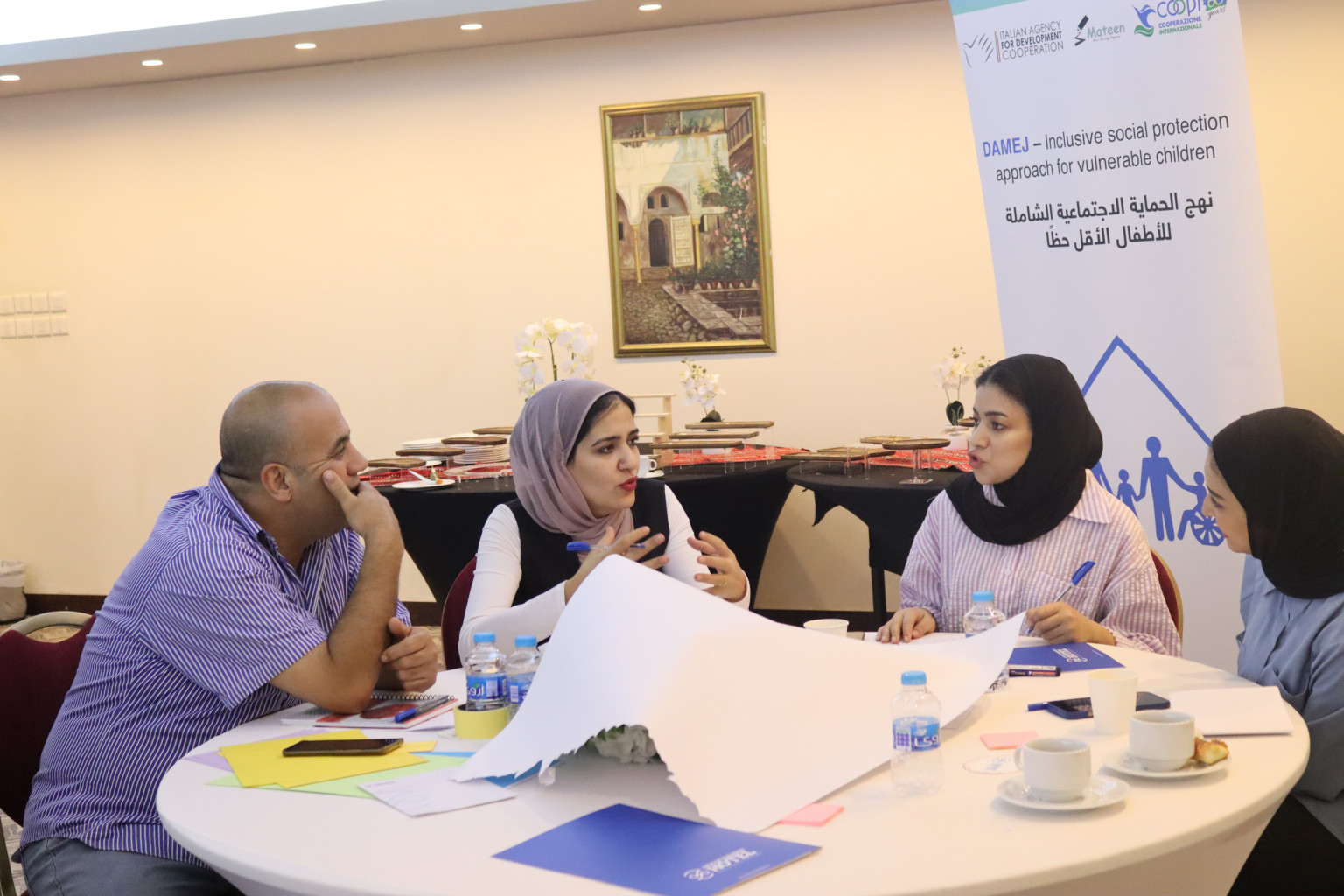04-07-2025 | di COOPI
Jordan strengthens child protection and adolescent engagement
Within the framework of implementation of DAMEJ project: An Inclusive Social Protection Approach for Vulnerable Children implemented by COOPI – Cooperazione Internazionale and funded by the Italian Agency for Development Cooperation (AICS), a four-day specialized training on protection and adolescent-based clubs was conducted in Amman from May 26 to 29, 2025 in Amman Paradise Hotel. The training aimed to enhance the capacities of governmental and non-governmental personnel working in child protection by equipping them with both theoretical knowledge and practical tools to support vulnerable children, especially those at risk of violence, neglect, exploitation, school dropout, and other protection concerns.
The training was divided into two main parts. During the first two days, participants were introduced to foundational knowledge and legal frameworks. Day one covered topics such as psychosocial well-being, the four principles of the Convention on the Rights of the Child (CRC), and key child protection concepts. Day two focused on the national legal and legislative frameworks for child protection in Jordan, child protection in emergency contexts, minimum standards for protection in humanitarian settings, and policies related to the prevention of sexual exploitation and abuse (PSEA). These sessions aimed to provide participants with a solid grounding in both global and national protection standards and mechanisms.
The second half of the training, held on days three and four, emphasized practical application and facilitation skills. Day three introduced the principles and processes of child protection case management, along with the structure and importance of adolescent clubs. Participants explored topics such as community initiatives, facilitation techniques, and characteristics of effective facilitators. The final day was dedicated to practical sessions in which participants applied selected activities from the Adolescent-based Clubs Facilitation Manual, receiving structured feedback to refine their skills.
A total of 17 participants took part in the training (9 males and 8 females), representing a diverse mix of institutions from Amman and Madaba governorates. These included the Ministry of Education (MoE), Ministry of Social Development (MoSD), Balcony Association, Hamsa Urduneyya Association, and COOPI. Participants brought varied professional backgrounds in education, social work, psychology, and youth programs. This diversity contributed to a rich exchange of knowledge and perspectives throughout the training.
Key outcomes of the training included improved understanding of child protection systems, enhanced facilitation skills, and the ability to design and implement youth-focused community initiatives. Pre and post-training assessments demonstrated clear gains in knowledge and confidence among participants. Interactive methodologies such as role plays, case studies, and group discussions were instrumental in achieving these outcomes, while daily verbal feedback helped the trainer adapt sessions to meet the evolving needs of participants.
In conclusion, the training made a significant contribution to strengthening the capacity of child protection actors in Jordan. Participants were encouraged to register to Kaya Platform to receive protection training workshops as a continued professional development.
Since 2017, COOPI has been active in Jordan, primarily in the governorates of Amman, Irbid, Zarqa, and Karak. In response to the ongoing humanitarian and socio-economic challenges, intensified by the Syrian refugee crisis and the COVID-19 pandemic, COOPI works to promote social cohesion and resilience among both host communities and Syrian refugees. Its interventions focus on child protection, access to education, prevention of sexual and gender-based violence, and psychosocial support. Additionally, COOPI supports vulnerable populations, particularly women, through livelihood and business development initiatives aimed at fostering economic empowerment and community well-being.




 Jordan
Jordan
